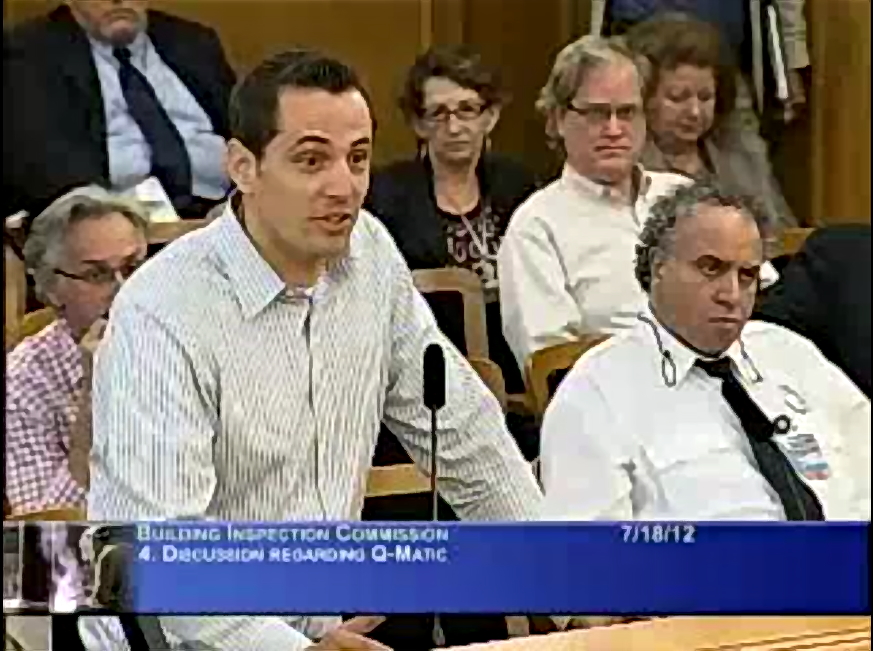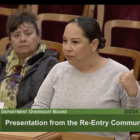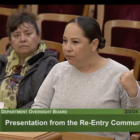San Francisco Mayor Ed Lee next week plans to appoint an earthquake retrofit czar, whose job is to make sure seismic safety plans from last year don’t languish on the shelf until the next big temblor strikes.
City officials hope the new manager will fast-track a proposal to require owners of thousands of buildings to retrofit, and he will be tasked with figuring out a way to assist owners who cannot pay for repairs.
Lee plans to announce the hiring of Patrick Otellini to the post next week, on the anniversary of the 1989 Loma Prieta earthquake. Otellini, 32, is a former senior associate at A.R. Sanchez-Corea and Associates, a San Francisco firm that helps developers traverse the city’s thorny landscape of building codes.
After 11 years in his private-sector job, Otellini will manage the city’s Earthquake Safety Implementation Program within the City Administrator’s Office.
Laurence Kornfield, a special assistant to the city manager, who was part of a 10-year study of the city’s seismic safety issues, said the new position was a significant step forward for seismic safety. “Everybody has been eagerly awaiting that, for sure,” Kornfield said.
One of the program’s key recommendations is to mandate that some property owners retrofit their buildings. Under current plans, the city must establish the safety standards of that mandate by 2015.
Seismologists predict that a quake of magnitude-6.7 or stronger has a 63 percent chance of hitting the Bay Area within 30 years. Even though Loma Prieta, which had a magnitude of 6.9, originated more than 50 miles south of San Francisco, the city took the heaviest blow in the region terms of cost — more than $2.7 billion.
San Francisco lies between the two fault zones most likely to rupture in the coming decades: the Hayward/Rogers Creek and the San Andreas.
Otellini will coordinate “the development of voluntary and mandatory seismic information and upgrade programs, and prepare necessary legislation and administrative regulations,” according to San Francisco’s Department of Human Resources. The managerial position will pay between $108,030 and $137,878.
One top priority for future mandatory action will be a citywide retrofit of so-called soft-story wood-frame residential buildings with three or more stories and five or more apartments. Soft-story buildings have open space or large windows on the ground floor, and therefore relatively low structural integrity. Many postwar apartment complexes are built with a ground-floor parking lot or storefront.
City-sponsored studies have found that San Francisco has about 2,800 of these buildings, and that between 12,000 and 2,400 would be uninhabitable after a major earthquake, leaving 12,000 to 25,000 residents without homes. Between 300 and 850 of these buildings would likely collapse on the first, “soft” floor.
Soft-story seismic retrofits have been voluntary for building owners, but that may change soon.
Kornfield said he hoped the Mayor’s Office would propose mandatory retrofit legislation to the Board of Supervisors within a year. Before that can happen, his team needs to identify a method for pinpointing at-risk buildings. The city would pass the retrofitting responsibility to homeowners, who would have to hire engineers or architects to assess their buildings’ integrity.
The economic recession left the Department of Building Inspection unable to spearhead the assessments. “We don’t have sufficient staff to go out and actively inspect every building,” said the William Strawn, a department spokesman, referring to soft-story buildings. The department has laid off many employees, and even though hiring is on the upswing, “We’re still on the low side of where we were,” Strawn said.
Otellini served on the Soft-Story Task Force, established by former Mayor Gavin Newsom. In his new position he will need to find a way to provide funding assistance for building owners who cannot afford the required retrofits. At $10,000 to $20,000 per living unit, retrofitting a 10- to 20-unit apartment building might be impossible for some building owners to afford without assistance.
Sarah Karlinsky, deputy director of the San Francisco Planning and Urban Research Association, which studies city planning and governance, said she hoped Otellini would make sure all a soft-story retrofit mandate was both up to code and universally supported.
“Having a dedicated person in this position will hopefully be very helpful getting all the players together, and actually moving forward the actual legislation, getting it introduced,” she said.










